October 11, 2016
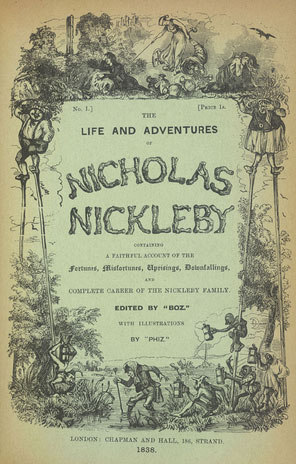 We’re going to jump right in and continue Cocktail Talking with Mr. Charles Dickens and Nicholas Nickleby, in honor of me recently re-reading it. If you missed our Nicholas Nickleby Cocktail Talk Part I, be sure and go back to read it. For this one, we’re going to head to one of the villains of the piece, and one of the great names that Dickens is so famous for: Mr. Squeers, one of the worst headmasters (vaguely, at least) in fiction, and one who is fortifying himself with “raw spirits” in the below quote.
We’re going to jump right in and continue Cocktail Talking with Mr. Charles Dickens and Nicholas Nickleby, in honor of me recently re-reading it. If you missed our Nicholas Nickleby Cocktail Talk Part I, be sure and go back to read it. For this one, we’re going to head to one of the villains of the piece, and one of the great names that Dickens is so famous for: Mr. Squeers, one of the worst headmasters (vaguely, at least) in fiction, and one who is fortifying himself with “raw spirits” in the below quote.
It’s pretty nigh the time to wait upon the old woman. From what she said last night, I suspect that if I’m to succeed at all, I shall succeed tonight; so I’ll have half a glass more, to wish myself success, and put myself in spirits. Mrs Squeers, my dear, your health!’
Leering with his one eye as if the lady to whom he drank had been actually present, Mr Squeers–in his enthusiasm, no doubt–poured out a full glass, and emptied it; and as the liquor was raw spirits, and he had applied himself to the same bottle more than once already, it is not surprising that he found himself, by this time, in an extremely cheerful state, and quite enough excited for his purpose.
What this purpose was soon appeared; for, after a few turns about the room to steady himself, he took the bottle under his arm and the glass in his hand, and blowing out the candle as if he purposed being gone some time, stole out upon the staircase, and creeping softly to a door opposite his own, tapped gently at it.
— Charles Dickens, Nicholas Nickleby
October 4, 2016
 Published originally in 1838 (that’s when it started publication, at least, as it was a serial as many books were back then), Nicholas Nickleby hasn’t yet been featured in a Cocktail Talk post, which is a little surprising, since I’ve had a fair amount of Dickens Cocktail Talking. While it’s not my favorite Dickens, and maybe is considered second tier, that just means it’s amazing. It’s a little more romantic in a way then many Dickens books, and has a more Trollopean ending (if that makes sense), but I sorta like that. It’s a long read, too, which for many today in our rush-rush world is tough (wimps), but well worth reading, and sticking with, as it really starts to roll and then you get completely involved with our eponymous hero and his family, and enemies. But while it’s here, of course, is because like most Dickens (all, probably, would be safe) books, there’s a fair amount of times in pubs, at punch bowls, and just folks sipping this and that. Enough so that I’m planning a number of quotes from it here, maybe even the whole month! Let’s see how it goes, shall we? Dickens would be happy about it, I think (he’s probably one of the most, be-fun-to-have-a-drink-with authors throughout history). I’m going to start with one from a fair of sorts, where there’s a tent with a rouge-et-noir table with a loud barker, bringing people in to play with the promise of bubbly and more.
Published originally in 1838 (that’s when it started publication, at least, as it was a serial as many books were back then), Nicholas Nickleby hasn’t yet been featured in a Cocktail Talk post, which is a little surprising, since I’ve had a fair amount of Dickens Cocktail Talking. While it’s not my favorite Dickens, and maybe is considered second tier, that just means it’s amazing. It’s a little more romantic in a way then many Dickens books, and has a more Trollopean ending (if that makes sense), but I sorta like that. It’s a long read, too, which for many today in our rush-rush world is tough (wimps), but well worth reading, and sticking with, as it really starts to roll and then you get completely involved with our eponymous hero and his family, and enemies. But while it’s here, of course, is because like most Dickens (all, probably, would be safe) books, there’s a fair amount of times in pubs, at punch bowls, and just folks sipping this and that. Enough so that I’m planning a number of quotes from it here, maybe even the whole month! Let’s see how it goes, shall we? Dickens would be happy about it, I think (he’s probably one of the most, be-fun-to-have-a-drink-with authors throughout history). I’m going to start with one from a fair of sorts, where there’s a tent with a rouge-et-noir table with a loud barker, bringing people in to play with the promise of bubbly and more.
‘Gentlemen, we’ve port, sherry, cigars, and most excellent champagne. Here, wai-ter, bring a bottle of champagne, and let’s have a dozen or fifteen cigars here–and let’s be comfortable, gentlemen–and bring some clean glasses–any time while the ball rolls!–I lost one hundred and thirty-seven pound yesterday, gentlemen, at one roll of the ball, I did indeed!–how do you do, sir?’ (recognising some knowing gentleman without any halt or change of voice, and giving a wink so slight that it seems an accident), ‘will you take a glass of sherry, sir?–here, wai-ter! bring a clean glass, and hand the sherry to this gentleman–and hand it round, will you, waiter?–this is the rooge-a-nore from Paris, gentlemen–any time while the ball rolls!–gentlemen, make your game, and back your own opinions–it’s the rooge-a-nore from Paris– quite a new game, I brought it over myself, I did indeed–gentlemen, the ball’s a-rolling!’
— Charles Dickens, Nicholas Nickleby
April 30, 2013
 Well, it’s been a fine week (or, thereabouts. Or, my week may be different than yours. One of those) of Dickens Cocktail Talk posts, with all of them from his lesser-known, but still a book that should be on your “must-read” list, novel The Old Curiosity Shop. You know what’s funny? At least relating to the book and the Cocktail Talking? I could do, oh, at least four more posts with tipsy quotes from the book. Dickens, naturally, liked his drink a bit, and his drinkers, and his bars, and so his books tend to be dandy spots for those us who don’t mind a drink to dwell in. This last quote has to do with the devilish villain of the book, a certain Mr. Quilip, looking in at his lawyer, who is also villainous, but in a weaker and (to be honest) less admirable way. If you’re going to be a villain, at least don’t be mealy-mouthed about it. And while I can’t like him, I can’t really fault his drinking choices.
Well, it’s been a fine week (or, thereabouts. Or, my week may be different than yours. One of those) of Dickens Cocktail Talk posts, with all of them from his lesser-known, but still a book that should be on your “must-read” list, novel The Old Curiosity Shop. You know what’s funny? At least relating to the book and the Cocktail Talking? I could do, oh, at least four more posts with tipsy quotes from the book. Dickens, naturally, liked his drink a bit, and his drinkers, and his bars, and so his books tend to be dandy spots for those us who don’t mind a drink to dwell in. This last quote has to do with the devilish villain of the book, a certain Mr. Quilip, looking in at his lawyer, who is also villainous, but in a weaker and (to be honest) less admirable way. If you’re going to be a villain, at least don’t be mealy-mouthed about it. And while I can’t like him, I can’t really fault his drinking choices.
Applying his eye to this convenient place, he descried Mr. Brass seated at the table with pen, ink, and paper, and the case-bottle of rum – his own case-bottle, and his own particular Jamaica – convenient to his hand; with hot water, fragrant lemons, white lump sugar, and all things fitting; from which materials, Sampson, by no means insensible to their claims upon his attention, had compounded a mighty glass of punch reeking hot; which he was at that very moment stirring up with a teaspoon, and contemplating with a look in which a faint assumption of sentimental regret struggled but weakly with a bland and comfortable joy.
–Charles Dickens, The Old Curiosity Shop
April 23, 2013
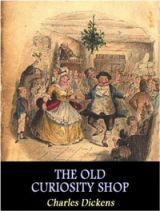 Hey, readers of this blog, you should know this: I’m a big fan of Charles Dickens. Heck, there are a couple Charles Dickens Cocktail Talk posts on here already (as well as a few other odds and sods related to him). He had the stuff, in my opinion. And, so I regularly re-read him, and recently did such with The Old Curiosity Shop. Not my top Dickens pick – not sure what is, really – but still awesomely awesome (I wonder what he would say if someone referred to him that way, way back when). And full of the lovely cast of Dickensian characters, good, bad, really bad, silly, stupid, wonderful, and tipsy. Of course, the latter are what we’re focusing on here. And the book is so filled with good drinkerly quotes that we’re gonna do a whole week of them! Or more. Who knows? Only me, Dickens, and the pony. This first quote’s from the early parts of the book, and makes some true points on soda water and human hair.
Hey, readers of this blog, you should know this: I’m a big fan of Charles Dickens. Heck, there are a couple Charles Dickens Cocktail Talk posts on here already (as well as a few other odds and sods related to him). He had the stuff, in my opinion. And, so I regularly re-read him, and recently did such with The Old Curiosity Shop. Not my top Dickens pick – not sure what is, really – but still awesomely awesome (I wonder what he would say if someone referred to him that way, way back when). And full of the lovely cast of Dickensian characters, good, bad, really bad, silly, stupid, wonderful, and tipsy. Of course, the latter are what we’re focusing on here. And the book is so filled with good drinkerly quotes that we’re gonna do a whole week of them! Or more. Who knows? Only me, Dickens, and the pony. This first quote’s from the early parts of the book, and makes some true points on soda water and human hair.
He began by remarking that soda-water, though a good thing in the abstract was apt to lie cold upon the stomach unless qualified with ginger, or a small infusion of brandy, which latter article he held to be preferable in all cases, saving for the one consideration of expense. Nobody venturing to dispute these positions, he proceeded to observe that the human hair was a great retainer of tobacco-smoke, and that the young gentlemen of Westminster and Eton, after eating vast quantities of apples to conceal any scent of cigars from their anxious friends, were usually detected in consequence of their heads possessing this remarkable property.
–Charles Dickens, The Old Curiosity Shop
December 12, 2012
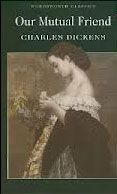 If I could, through the wonders of wondrous science (c’mon science, I’m buttering you up, make this happen) either go back in time to have a drink with Mr. Charles Dickens, or go miraculously into the universe of a Dickens’ book, well, I’d be tickled. Sure, sure, I wouldn’t want to go forever (I mean, Sookie and Rory wouldn’t be around, for one. And Dr. Strange wasn’t even a thought yet), but the pub and bar scenes he relates, and his evident adoration for certain drinks, call out to me in a slightly slurred voices. And if I had to choose which of the many watering holes from the many Dickens’ books? Well, I’m not sure, but the Six Jolly Fellowship Porters from the great book Our Mutual Friend would definitely be in the running, if not running away with my vote and me. Wonder why? Read the below quote why dontcha.
If I could, through the wonders of wondrous science (c’mon science, I’m buttering you up, make this happen) either go back in time to have a drink with Mr. Charles Dickens, or go miraculously into the universe of a Dickens’ book, well, I’d be tickled. Sure, sure, I wouldn’t want to go forever (I mean, Sookie and Rory wouldn’t be around, for one. And Dr. Strange wasn’t even a thought yet), but the pub and bar scenes he relates, and his evident adoration for certain drinks, call out to me in a slightly slurred voices. And if I had to choose which of the many watering holes from the many Dickens’ books? Well, I’m not sure, but the Six Jolly Fellowship Porters from the great book Our Mutual Friend would definitely be in the running, if not running away with my vote and me. Wonder why? Read the below quote why dontcha.
The bar of the Six Jolly Fellowship Porters was a bar to soften the human breast. The available space in it was not much larger than a hackney-coach; but no one could have wished the bar bigger, that space was so girt in by corpulent little casks, and by cordial-bottles radiant with fictitious grapes in bunches, and by lemons in nets, and by biscuits in baskets, and by the polite beer-pulls that made low bows when customers were served with beer, and by the cheese in a snug corner, and by the landlady’s own small table in a snugger corner near the fire, with the cloth everlastingly laid. This haven was divided from the rough world by a glass partition and a half-door, with a leaden sill upon it for the convenience of resting your liquor; but, over this half-door the bar’s snugness so gushed forth that, albeit customers drank there standing, in a dark and draughty passage where they were shouldered by other customers passing in and out, they always appeared to drink under an enchanting delusion that they were in the bar itself.
For the rest, both the tap and parlour of the Six Jolly Fellowship Porters gave upon the river, and had red curtains matching the noses of the regular customers, and were provided with comfortable fireside tin utensils, like models of sugar-loaf hats, made in that shape that they might, with their pointed ends, seek out for themselves glowing nooks in the depths of the red coals, when they mulled your ale, or heated for you those delectable drinks, Purl, Flip, and Dog’s Nose. The first of these humming compounds was a speciality of the Porters, which, through an inscription on its door-posts, gently appealed to your feelings as, ‘The Early Purl House’. For, it would seem that Purl must always be taken early; though whether for any more distinctly stomachic reason than that, as the early bird catches the worm, so the early purl catches the customer, cannot here be resolved. It only remains to add that in the handle of the flat iron, and opposite the bar, was a very little room like a three-cornered hat, into which no direct ray of sun, moon, or star, ever penetrated, but which was superstitiously regarded as a sanctuary replete with comfort and retirement by gaslight, and on the door of which was therefore painted its alluring name: Cosy.
—Our Mutual Friend, Charles Dickens
Tags: Bars, Charles Dickens, Cocktail Talk, Dog's Nose, Flip, Our Mutual Friend, Purl, Six Jolly Fellowship Porters, time travel to visit bars from the past
Posted in: Bars, Cocktail Talk, Drinking Writer
June 25, 2012
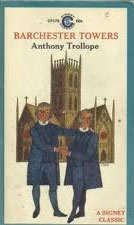 Barchester Towers (which has had a Cocktail Talk entry already) is of course the best known book by Anthony Trollope. Well, at least I believe it is. You can disagree if you’d like–I won’t hoot about it if you have a different favorite or think another of his remarkable novels has more reknown. If you don’t know who Anthony Trollope is, then, well, I don’t think you’re human. Heck, I’ve written a whole slew of Anthony Trollope posts, so you should at least know him through this here blog (and if you don’t, well, I’m not going to hoot, but I am going to wonder what it is, exactly, that’s wrong with you). But that’s as much as I’m gonna stew about it, cause instead I want to get to this little quote that I love so well, cause it is a quote from one of the greatest authors containing a shout out to another great author (if you don’t know who the second is after reading the below quote, then really, go back to watching bad TV). Many authors (like many people in general–outside of rap stars, who give shout outs to tons of contemporaries, often) are afraid of this type of behavior. Not my man Trollope, though. So, check this out, and think about how giving props to those who may, actually, be in the same game as you isn’t a bad thing.
Barchester Towers (which has had a Cocktail Talk entry already) is of course the best known book by Anthony Trollope. Well, at least I believe it is. You can disagree if you’d like–I won’t hoot about it if you have a different favorite or think another of his remarkable novels has more reknown. If you don’t know who Anthony Trollope is, then, well, I don’t think you’re human. Heck, I’ve written a whole slew of Anthony Trollope posts, so you should at least know him through this here blog (and if you don’t, well, I’m not going to hoot, but I am going to wonder what it is, exactly, that’s wrong with you). But that’s as much as I’m gonna stew about it, cause instead I want to get to this little quote that I love so well, cause it is a quote from one of the greatest authors containing a shout out to another great author (if you don’t know who the second is after reading the below quote, then really, go back to watching bad TV). Many authors (like many people in general–outside of rap stars, who give shout outs to tons of contemporaries, often) are afraid of this type of behavior. Not my man Trollope, though. So, check this out, and think about how giving props to those who may, actually, be in the same game as you isn’t a bad thing.
The bishop did it, and a very pleasant day indeed he spent at Ullathorne. And when he got home, he had a glass of hot Negus in his wife’s sitting-room and read the last number of the Little Dorritt of the day with great inward satisfaction.
–Anthony Trollope, Barchester Towers
February 22, 2011
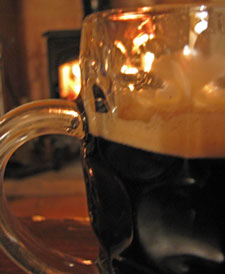 If you’ve read this blog longer than, well, last week, or have read any of my books, you probably know that I dig Dickens (Charles, that is. I don’t like Pudgie Dickens at all). I’ve had a quote or two on here from his books, and probably have rambled enough that if he were here, he’d say “shut yr yap Rathbun.” Or, he’d buy me a drink. I like Dickens so much that I even have posts about his up on other worthy blogs—well, at least one. See, I recently wrote about have drinks with Dickens on Michael Green’s blog. Head on over to learn more about drinks in Dickens time, why you should be toasting him, and how to make a few drinks mentioned in his book: the Dog’s Nose (pictured left) and the Purl. So, head on over and get your Dickens on.
If you’ve read this blog longer than, well, last week, or have read any of my books, you probably know that I dig Dickens (Charles, that is. I don’t like Pudgie Dickens at all). I’ve had a quote or two on here from his books, and probably have rambled enough that if he were here, he’d say “shut yr yap Rathbun.” Or, he’d buy me a drink. I like Dickens so much that I even have posts about his up on other worthy blogs—well, at least one. See, I recently wrote about have drinks with Dickens on Michael Green’s blog. Head on over to learn more about drinks in Dickens time, why you should be toasting him, and how to make a few drinks mentioned in his book: the Dog’s Nose (pictured left) and the Purl. So, head on over and get your Dickens on.
May 22, 2009
 Okay, I’m gonna come out and say it (cause it’s a Friday before a long holiday weekend, and I don’t have time for any dilly-dallying, and you don’t have time for me to go on along a long, literary, meandering, essay about it): Charles Dickens kicks ass. Hah, search and spam engines, chew on that. Dickens, even, kicks a mule’s ass. And if you’re from Kansas that’ll make some sort of sense. Or not. Dickens is not only one of the (probably the, but again, I’m not taking up too much of your time today) greatest novelists ever, but also enjoyed his pubs and pub-denizens, had a fine home stock of booze, and was known to take a sip or two regularly. Like all good-minded people.
Okay, I’m gonna come out and say it (cause it’s a Friday before a long holiday weekend, and I don’t have time for any dilly-dallying, and you don’t have time for me to go on along a long, literary, meandering, essay about it): Charles Dickens kicks ass. Hah, search and spam engines, chew on that. Dickens, even, kicks a mule’s ass. And if you’re from Kansas that’ll make some sort of sense. Or not. Dickens is not only one of the (probably the, but again, I’m not taking up too much of your time today) greatest novelists ever, but also enjoyed his pubs and pub-denizens, had a fine home stock of booze, and was known to take a sip or two regularly. Like all good-minded people.
Anywho, the following quotes are from the lesser-known (but genius) book Martin Chuzzlewit. I thought they might be a good prelude to your long weekend, help get you going with the right frame of drinking mind, and might, might I say, induce you to read a little, too, while kicking up your holiday heels. But avoid the dullness. Cause you aren’t ever dull. Not you.
As to them, the man who can dream such iced Champagne, such claret, port, or sherry, had better go to bed and stop there.
He could hang about a bar-room discussing the affairs of the nation, for twelve hours together; and in that time could hold forth with more intolerable dullness, chew more tobacco, some more tobacco, drink more rum-toddy, mint-julep, gin-sling, and cock-tail than any private gentleman of his acquaintance. This made him an orator and man of the people.
—Charles Dickens, Martin Chuzzlewit
 We’re going to jump right in and continue Cocktail Talking with Mr. Charles Dickens and Nicholas Nickleby, in honor of me recently re-reading it. If you missed our Nicholas Nickleby Cocktail Talk Part I, be sure and go back to read it. For this one, we’re going to head to one of the villains of the piece, and one of the great names that Dickens is so famous for: Mr. Squeers, one of the worst headmasters (vaguely, at least) in fiction, and one who is fortifying himself with “raw spirits” in the below quote.
We’re going to jump right in and continue Cocktail Talking with Mr. Charles Dickens and Nicholas Nickleby, in honor of me recently re-reading it. If you missed our Nicholas Nickleby Cocktail Talk Part I, be sure and go back to read it. For this one, we’re going to head to one of the villains of the piece, and one of the great names that Dickens is so famous for: Mr. Squeers, one of the worst headmasters (vaguely, at least) in fiction, and one who is fortifying himself with “raw spirits” in the below quote.


























